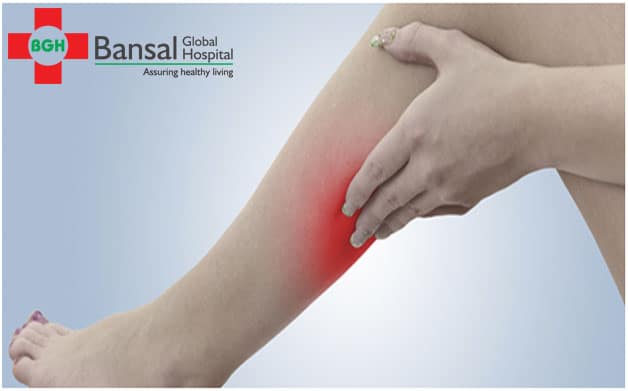When a muscle is overstretched or ripped, it is referred to as a pulled muscle. This usually happens as a result of muscle exhaustion, overuse, or inappropriate use. Strains can occur in any muscle, but the lower back, neck, shoulder, and hamstring, which is the muscle behind your leg, are most likely to suffer muscle strain, given today’s lifestyle.
These strains can cause pain and impede movement in the muscle group affected. Mild to severe strains respond well to cold, heat, and anti-inflammatory drugs, and thus can be treated at home. Severe sprains and rips may necessitate medical attention.
WHAT ARE THE SYMPTOMS OF MUSCLE STRAIN?
When this happens, you’ll likely feel a muscle tension. Among the signs and symptoms are:
- Rapid onset of stiffness and discomfort
- Restricted range of motion
- Muscle spasms bruising or discolouration swelling a “knotted-up” feeling
- Stiffness
- Weakness
A torn muscle may feel slightly stiff in a minor strain, but it is still flexible enough to be used. When a muscle is significantly torn, it is termed to as a severe muscle strain. This causes pain and restricts movement.
Mild to severe muscular strains normally resolve themselves within a few weeks. It may take months for more serious strains to heal.
WHAT CAUSES MUSCLE STRAIN
When your muscle tears suddenly and unexpectedly, you have an acute muscular strain. These tears can arise as a result of trauma or injury. This could be as a result of:
- not fully warming up before strenuous activity
- inadequate adaptability
- tiredness
- overexertion
When you trip or lose your balance jump run throw anything, lifts something heavy lift something while in an awkward position, you can get an acute strain.
In the winter, acute muscular strains are more common. This is due to the fact that muscles stiffen at colder temperatures. In these situations, it’s critical to spend additional time warming up to avoid strains.
FIRST AID FOR MUSLE STRAINS
The RICE approach is the most popular and efficient treatment for muscle strains.
REST –––Rest and avoid strenuous exercise. This can aid in the treatment of strained muscles and other injuries.
ICE–––Use cold packs with a barrier between them and your skin to ice your muscle for 20 minutes at a time.
COMPRESSION–––Apply sustained, mild pressure to your muscle to compress it. This helps to keep swelling and inflammation at bay. It is recommended to wrap an elastic bandage around the injured muscle.
ELEVATE–––To minimise swelling, elevate the injury over your heart. Raise an affected limb with cushions or other devices as you sleep.
WHEN TO SEE A DOCTOR
Home therapy should suffice for mild to moderate strains. If any of the following occurs, get medical help:
- The area where the injury occurred is numb.
- The ache doesn’t decrease after a week.
- The ache doesn’t decrease after a week.
- There’s bleeding from the injury.
- You are unable to walk.
- You can’t move your arms or legs.
Your doctor can establish the degree of your injuries using a physical examination and imaging procedures like X-rays and MRI scans.
Anti-inflammatory medicines and pain relievers may be used to alleviate pain and swelling. Physical therapy may be recommended by your doctor to help strengthen the muscle and restore movement. In really severe cases, surgery may be required to help the muscle heal.
If you have any questions regarding, your health, Covid-19 or other variants, need information regarding vaccination, or need assistance, contact your nearby hospitals. Our specialised team of doctors at the Bansal Global Hospital are 24/7 available to help you with your medical concerns. Fix your appointment today and contact us at +919911062832.

